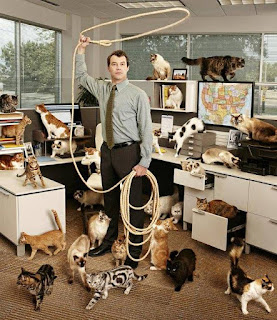How to Make a Wise Decision!
Not all decisions are wise. Deciding on that dividend re-investment offer just before the global financial crisis. Setting up a business partnership expecting the whole to be greater than the sum of its parts. Believing lycra is slimming.
The outcome of our research over the past 4 years has yielded a model of mental flexibility and a self-test of information processing styles called the DPS (Decision Processing Survey)®
We think we make wise decisions. But that's because we're good at post-facto rationalisation. The truth is we make far more foolish decisions than wise ones, we just don't see it at the time. So, how can you improve your odds of making the "right" decision next time?
For the past 4 years my business colleague, Dr Barry Partridge and I have been researching that question. We received funding from the NSW Department of Innovation and Technology in conjunction with the University of Wollongong. And now we think we have an answer.
It turns out that each of us has a preferred style of processing the available information prior to making a decision. This reflects our unconscious bias, and explains why we all believe we're good decision makers when we're not.
Well that's not quite true. Decision making is incredibly idiosyncratic. We become good at making decisions at work as a result of training and experience. In fact, mastery in any occupation is characterised by the ability to make generally good decisions intuitively and quickly.
Experience may be necessary but it's not a sufficient condition for making good decisions, certainly not wise decisions. Research at the Max Planck Institute for Human Development in Berlin has demonstrated that wisdom-related performance is higher in a cohort of 60 year-olds than in 20-somethings. But the frequency of wisdom-related performance tends to plateau in our 30s and continue right through the lifespan. We get older, but not necessarily wiser.
The research on decision making over the past few decades has been see-sawing backwards and forwards between the benefits of rationality and the new evidence about intuition. Some see this as a distinction between "thinking fast and thinking slow". But something is missing in this dualistic model. Where is the ethical and moral dimension?
Our business schools claim eminence in the training of rational thinking. And yet the progeny of this training oversaw a financial collapse that eclipsed the Great Depression. On the other hand, experience (intuition) doesn't seem to help in a VUCA world (Volatile, Uncertain, Complex, and Ambiguous). How should we prepare ourselves to make the wise decisions required to sustain our fragile existence in the face of runaway population growth and climate change?
The psychometric properties of the DPS are robust and allow us to make predictions about unconscious bias in decision making, particularly when the stakes are high. We have discovered that the very best decision makers are likely to have strengths across three modes of information processing:
- Intuitive: experiential, sensed, felt, immediate, pattern-recognition.
- Deliberative: logical, analytical, calculated, derived from first principles.
- Considerative: discerned, balanced, consequential, values-driven, seeking the common good.
Strengths in these three styles are necessary, and sufficient, for making wise decisions.
Further, our strengths-based training in mental flexibility can enhance all three styles to maximise the probability that you will make wiser decisions when the context demands it.
Whatever decision making crossroad you are facing at the moment, fist ask yourself these questions:
- What feels right (or wrong) about this?
- How can I best weigh up (calculate) my options?
- What is the wisest thing to do?
Now, more than ever, we are called to make wise decisions. At any age, and in any occupation. Will your next decision be wise? And the one after that? And the one after that?




Comments
Post a Comment